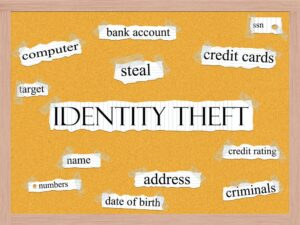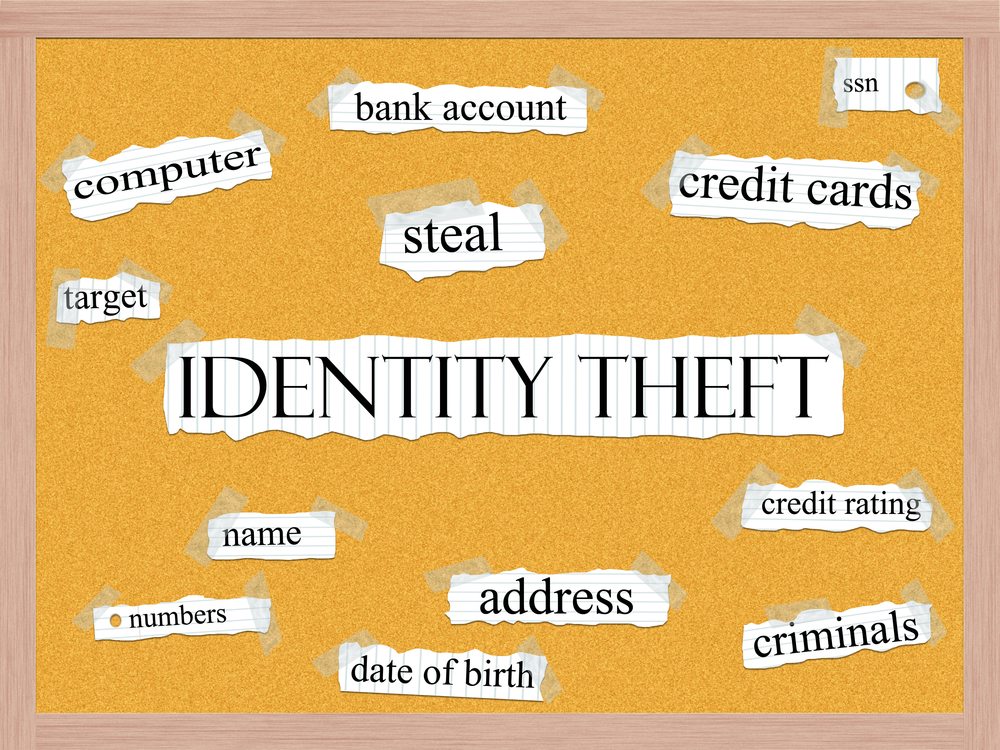
Identity theft is a growing and widespread crime, as thieves target innocent victims in search of information that can be used to take over their lives. Over 9 million people in the U.S. alone have been victims of this common crime, and it has spread across the globe with fraudsters searching, scrolling and stealing information to use in stealing the identity of victims.
RKN Global’s founder, Ronald Noble, alerts us to the perils of identity theft. Many of us are unaware of the dangers of becoming a victim of identity theft, and it happens in the blink of an eye. Although it is not something that everyone thinks of, protecting yourself and your family from becoming targets of this kind of crime is a must, and there are ways to keep the fraudsters out. Becoming a victim is a living nightmare when you wake up and realise that your name is not yours, your bank account has been emptied and you have debts that you never knew existed. Financial transactions are not the only thing that identity thieves can do with your identity; they are also able to leave the country, cross borders and commit other crimes such as drug trafficking and money laundering, using your name and leaving you to take the blame.
What Identity Thieves Look For
Information is what any fraudster needs to take over your life. With the right information, identity thieves can “become you” in just a few hours, running up debts and living a life with your name until they either get caught or run out of funds. By the time you have realised that this has happened, they are gone and already onto their next victim.
Ronald Noble, founder of RKN Global, underscores the importance of data and information for many areas of crime. For identity theft, however, getting information is an integral part of committing the crime.
Identity thieves scroll the internet and use special programs to get your data, passwords and documentation, so without firewalls and protection programs you don’t stand a chance. Every internet user should take precautions when it comes to online transactions, as criminals are waiting for that little gap to get into your emails and find ways into your banking. Thieves also target people who can easily be pick-pocketed–all they need is your purse or wallet to start their new lives and leave you with nothing. Your garbage is also a target because these fraudsters know that we throw away bills, paperwork and account statements without shredding them, which gives criminals a chance to use the information for their own purposes.
Identity thieves don’t need much at all and with just a small amount of information, they are able to open up accounts, withdraw your money and duplicate your cards before you have noticed.
What is Identity Theft?
One might assume that identity theft is not that big a deal, but if it happens to you it could change your life forever. Identity thieves take your information and use it to commit crimes. You are left to try and explain how this has happened and proof that you are not responsible is really difficult. Banks, police and creditors have your name, not the thief’s. This can leave you in trouble, as a lot of insurance companies have claimed that if your information is out there unprotected then it is your own fault and the debts that have been run up in your name are yours to pay. Some people have even had criminal charges brought against them, and only after a long and drawn out legal procedure where proof is supplied have they broken free from the mess. Identity thieves can also use your name to commit more serious crimes–it is up to you to ensure that your identity is protected at all times.
How to Prevent Identity Thieves from Taking over Your Life
RKN Global and its founder, Ronald Noble, cannot emphasize enough the importance of taking steps to protect yourself against identity theft. There are a few ways to protect yourself from identity thieves, and this is to ensure that all of your information is protected and that you are cautious when it comes to keeping your name secure. Remember that being a victim of identity theft is a very stressful and humiliating experience not only for you but for your family too. Don’t give the fraudsters an opening to take over your life– be smart and aware that this does happen and it could be you that is the next target.
- Protect your wallet, purse and handbag at all times Most of us keep our lives in our handbags. Fraudsters know this, which is why they keep an eye out for people who carelessly walk the malls oblivious to criminal activity.
- Keep all of your important documents, including birth certificates, passports, account details and social security cards in a safe If someone had to break in then it would be difficult for them to take it from your safe.
- Make copies of important information Should your documents get stolen, copies will help you when you need to stop accounts and prove your innocence.
- Shred your documents Once you have looked at a bill or you have received an account that you are done with, shred it, making sure that all the account details, address and identity numbers are illegible before you throw it into a bin
- Protect Pin numbers When you are at an ATM or at a pay point and you need to enter your pin code, make certain that there is nobody behind you and keep your pin covered so that only you can see it. Fraudsters look for this information to make their lives easier when stealing your cards.
- Check the Cash Machines Before you withdraw money, check the ATM for strange devices such as a loose card slot. Thieves sometimes insert a slot that is not easily recognised which is used to duplicate your card.
- Protect Passwords and Internet Usage Change your passwords often and never use the same one too many times on other sites, as this is easy to search if you are a hacker looking for passwords. Internet users should have anti – virus protection for their computer networks as identity thieves are waiting to find a gap in order to steal your information, and your details are all over the internet through emails, social networks and sites that you register with. Junk mail should be deleted without opening as this could be a phishing scam to gather your data.
- Be Cautious when Using your Credit Card on the Net Giving out your personal information is a risk on the internet. When you are asked to give the last 3 digits on the back of your credit card, this can be used by someone else to purchase in your name.
- Avoid Giving out Personal Information on the Phone Don’t give personal information out over the phone!
- Check Email Addresses before Replying Often a fraudster will duplicate a bank email with a letterhead, and will even go as far as duplicating the website for online banking just to get your information. Check the address carefully and if you are uncertain, call your bank and ask them about the email.
- Cellular Phone Passwords Your cellphone is a storehouse of information, especially if you lose it. Keep it password protected, never send out personal information and account numbers via phone, and delete emails with data on them.
RKN Global’s Founder Ronald Noble emphasizes that identity theft could be largely preventable—but we must take steps not to become easy targets.
Identity theft happens every day and it can happen to anyone who lets down their guard. You have to be cautious and you do need to protect your personal information because losing your identity to a thief can damage your credit and might even get you in undeserved trouble with the law. Criminals are waiting for people to make mistakes, and they especially look for any gap that they can find to gather just enough information to become you. Once an identity thief has been able to take over your name, it is very difficult and time consuming to fix things, especially when you have been cleaned out financially. Always be on the lookout and protect your children too, as they could also be targets.






